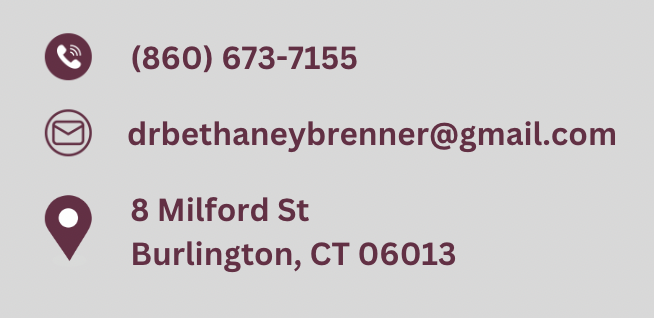Toothaches can range from mild irritation to intense discomfort that interferes with daily life. Understanding the causes and knowing how to manage symptoms effectively at home while preparing to seek professional care can make a big difference.
Temporary solutions like cold compresses or over the counter medication can help reduce pain until a dentist is available. These steps may not treat the root cause, but they can provide relief and help you manage discomfort in the moment.
Addressing the underlying cause is essential for long term relief. This often means treating decay, gum disease, or damage to the tooth. Regular dental checkups and good oral hygiene practices are key to preventing toothaches and avoiding more serious dental problems.
Introduction
Toothache relief is about more than just easing pain. It is also an opportunity to identify and treat the underlying dental issue before it gets worse. Acting early can prevent complications and reduce the need for more complex procedures.
Determining the cause of the toothache is the first step. Whether it is a cavity, cracked tooth, or gum issue, each cause requires a different approach. Applying a temporary solution at home may help you feel better, but only a dentist can provide a long term fix.
Keeping up with daily oral care and scheduling regular checkups helps you stay ahead of potential problems. Instead of waiting until discomfort starts, a proactive mindset leads to stronger oral health and fewer painful surprises.
Causes and Impact of Toothaches
Toothaches are warning signs that something in your mouth needs attention. They often signal decay, infection, or damage that can worsen if left untreated.
Decay is one of the most common causes. Poor brushing habits or frequent sugar intake can lead to cavities that expose the inner layers of the tooth, creating pain. Keeping teeth clean and watching sugar consumption are simple ways to reduce this risk.
Infections like abscesses cause more severe, throbbing pain and can lead to swelling or fever. These require professional care to avoid spreading to other parts of the body. Early treatment and good oral hygiene prevent minor infections from becoming serious.
Physical trauma like a cracked or broken tooth can also trigger a toothache. Sports injuries or biting hard foods can damage the enamel and expose nerves. Wearing a mouthguard and being mindful of what you eat are helpful preventive steps.
Home Remedies for Toothache Relief
If you experience a toothache, there are a few things you can do at home to reduce discomfort while waiting for a dental appointment.
- Rinsing with warm saltwater helps clean the mouth and reduce inflammation. This simple solution acts as a mild disinfectant and can provide temporary relief.
- A cold compress placed on the cheek near the painful area can numb the nerves and reduce swelling. This is especially helpful for sudden flare ups.
- Over the counter pain relievers like ibuprofen can help ease pain and reduce inflammation. Always follow dosage instructions and never place medicine directly on the gums.
These remedies are not long term solutions, but they offer fast relief and make waiting for your dental visit more manageable. They help keep you comfortable while you address the cause of your toothache with professional care.

The Role of Natural Remedies
Natural remedies can be helpful for managing mild toothaches. When used correctly, they can offer relief with fewer side effects and may be a good short term option until you can see your dentist.
Peppermint is known for its cooling, numbing effect. A peppermint tea bag applied to the sore area may ease the pain for a short period. Its gentle approach makes it a good option for those looking to avoid medication.
A diluted hydrogen peroxide rinse can also help reduce bacteria in the mouth. This supports good oral hygiene and can relieve discomfort caused by inflammation. Always follow safe guidelines when using any rinse, and never swallow the solution.
These remedies work best when used responsibly and with awareness of any personal allergies or sensitivities. While they may not fix the root problem, they are useful tools for short term comfort.
Signs to Seek Dental Intervention
Knowing when to go from home care to professional help is essential. Some symptoms are a sign that it is time to call your dentist right away.
If your pain does not go away or keeps getting worse, it likely means something more serious is going on. This may include deep decay, an infection, or a damaged tooth that requires treatment like a filling, root canal, or extraction.
Swelling in the mouth or face along with fever often points to infection. These symptoms can worsen quickly and may lead to complications beyond the mouth if not treated promptly. Seeking help right away is the safest course of action.
If the toothache affects your ability to breathe or swallow, get immediate medical help. This could be a sign that the infection has spread and needs urgent care. Taking quick action ensures your safety and leads to faster relief.
Prevention Strategies for Oral Health
The best way to avoid future toothaches is to build habits that support strong, healthy teeth. Daily care combined with professional support helps prevent pain before it starts.
Brush your teeth twice a day and floss at least once to remove plaque and food debris. These simple steps clean your teeth and protect against decay and gum disease.
See your dentist regularly for checkups and cleanings. These visits catch problems early and allow for preventive treatments like fillings or sealants. They are also a great time to ask questions about improving your oral care routine.
Limiting sugary snacks and drinks also protects your teeth. Sugar feeds harmful bacteria that cause decay, so making thoughtful dietary choices helps reduce the risk of future toothaches. Small changes in daily habits go a long way toward long term oral health.
Conclusion
At Bethaney B. Brenner DMD LLC, we know how painful and frustrating a toothache can be. That is why Dr. Brenner and her team are committed to helping you feel better fast and protect your smile for the long term.
We combine patient education, practical advice, and compassionate dental care to treat both the pain and the cause. Whether your toothache is due to decay, infection, or injury, we offer solutions tailored to your needs and focused on comfort.
If you are struggling with tooth pain or want to prevent future issues, we are here for you. Contact Dr. Bethaney B. Brenner’s office today to schedule a visit. Let us help you move from discomfort to relief with care you can trust.
Book Your Consultation Today!
Dr. Bethaney B. Brenner DMD
8 Milford St, Burlington, CT 06013
Frequently Asked Questions
Why is treating a toothache quickly important?
Acting fast can prevent a minor issue from becoming a major one. Early care often leads to quicker relief and lowers the risk of needing more extensive dental treatment later.
Can natural remedies provide real relief for toothaches?
Yes, they can offer temporary relief. Saltwater rinses and peppermint are simple, natural ways to reduce pain. However, these should not replace professional care if the pain persists.
When should I seek professional help for a toothache?
If your pain continues, worsens, or comes with symptoms like swelling or fever, call your dentist. These signs may point to infection or a serious issue that needs immediate attention.
Related Articles





